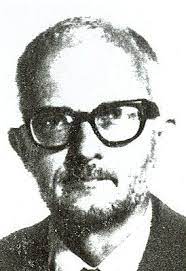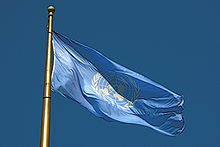
Cultural imperialism comprises the cultural dimensions of imperialism. The word "imperialism" describes practices in which a country engages culture to create and maintain unequal social and economic relationships among social groups. Cultural imperialism often uses wealth, media power and violence to implement the system of cultural hegemony that legitimizes imperialism.

Globalization, or globalisation, is the process of interaction and integration among people, companies, and governments worldwide. The term globalization first appeared in the early 20th century, developed its current meaning sometime in the second half of the 20th century, and came into popular use in the 1990s to describe the unprecedented international connectivity of the post-Cold War world. Its origins can be traced back to 18th and 19th centuries due to advances in transportation and communications technology. This increase in global interactions has caused a growth in international trade and the exchange of ideas, beliefs, and culture. Globalization is primarily an economic process of interaction and integration that is associated with social and cultural aspects. However, disputes and international diplomacy are also large parts of the history of globalization, and of modern globalization.

Hegemony is the political, economic, and military predominance of one state over other states, either regional or global.
Power politics is a theory of power in international relations which contends that distributions of power and national interests, or changes to those distributions, are fundamental causes of war and of system stability.
Globalism has multiple meanings. In political science, it is used to describe "attempts to understand all the interconnections of the modern world—and to highlight patterns that underlie them". While primarily associated with world-systems, it can be used to describe other global trends. The concept of globalism is also classically used to focus on the ideologies of globalization instead of its processes ; in this sense, "globalism" is to globalization what "nationalism" is to nationality.
Neo-Gramscianism is a critical theory approach to the study of international relations (IR) and the global political economy (GPE) that explores the interface of ideas, institutions and material capabilities as they shape the specific contours of the state formation. The theory is heavily influenced by the writings of Antonio Gramsci. Neo-Gramscianism analyzes how the particular constellation of social forces, the state and the dominant ideational configuration define and sustain world orders. In this sense, the neo-Gramscian approach breaks the decades-old stalemate between the realist schools of thought and the liberal theories by historicizing the very theoretical foundations of the two streams as part of a particular world order and finding the interlocking relationship between agency and structure. Karl Polanyi, Karl Marx, Max Weber, Max Horkheimer, Theodor Adorno and Michel Foucault are cited as major sources within the critical theory of IR.
Hegemonic stability theory (HST) is a theory of international relations, rooted in research from the fields of political science, economics, and history. HST indicates that the international system is more likely to remain stable when a single state is the dominant world power, or hegemon. Thus, the end of hegemony diminishes the stability of the international system. As evidence for the stability of hegemony, proponents of HST frequently point to the Pax Britannica and Pax Americana, as well as the instability prior to World War I and the instability of the interwar period.
The concept of reflexive modernization or reflexive modernity was launched by a joint effort of three of the leading European sociologists: Anthony Giddens, Ulrich Beck and Scott Lash. The introduction of this concept served a double purpose: to reassess sociology as a science of the present, and to provide a counterbalance to the postmodernist paradigm offering a re-constructive view alongside deconstruction.

In political and sociological theory, the elite are a small group of powerful people who hold a disproportionate amount of wealth, privilege, political power, or skill in a group. Defined by the Cambridge Dictionary, the "elite" are "those people or organizations that are considered the best or most powerful compared to others of a similar type."

Social cycle theories are among the earliest social theories in sociology. Unlike the theory of social evolutionism, which views the evolution of society and human history as progressing in some new, unique direction(s), sociological cycle theory argues that events and stages of society and history generally repeat themselves in cycles. Such a theory does not necessarily imply that there cannot be any social progress. In the early theory of Sima Qian and the more recent theories of long-term ("secular") political-demographic cycles as well as in the Varnic theory of P.R. Sarkar, an explicit accounting is made of social progress.
Global politics, also known as world politics, names both the discipline that studies the political and economic patterns of the world and the field that is being studied. At the centre of that field are the different processes of political globalization in relation to questions of social power.
Power transition theory is a theory about the nature of war, in relation to the power in international relations. The theory was first published in 1958 by its creator, A.F.K. Organski, in his textbook, World Politics (1958).

George Modelski was Professor of political science in the University of Washington. Modelski was a professor there from 1967 to 1995.
Posthegemony or post-hegemony is a period or a situation in which hegemony is no longer said to function as the organizing principle of a national or post-national social order, or of the relationships between and amongst nation states within the global order. The concept has different meanings within the fields of political theory, cultural studies, and international relations.
The transnational capitalist class (TCC), also known as the transnational capitalist network (TCN), in neo-Gramscian and Marxian-influenced analyses of international political economy and globalization, is the global social stratum that controls supranational instruments of the global economy such as transnational corporations and heavily influences political organs such as the World Trade Organization.

Cultural globalization refers to the transmission of ideas, meanings and values around the world in such a way as to extend and intensify social relations. This process is marked by the common consumption of cultures that have been diffused by the Internet, popular culture media, and international travel. This has added to processes of commodity exchange and colonization which have a longer history of carrying cultural meaning around the globe. The circulation of cultures enables individuals to partake in extended social relations that cross national and regional borders. The creation and expansion of such social relations is not merely observed on a material level. Cultural globalization involves the formation of shared norms and knowledge with which people associate their individual and collective cultural identities. It brings increasing interconnectedness among different populations and cultures. The idea of cultural globalization emerged in the late 1980s, but was diffused widely by Western academics throughout the 1990s and early 2000s. For some researchers, the idea of cultural globalization is reaction to the claims made by critics of cultural imperialism in the 1970s and 1980s.
Trade globalization is a type of economic globalization and a measure of economic integration. On a national scale, it loosely represents the proportion of all production that crosses the boundaries of a country, as well as the number of jobs in that country dependent upon external trade. On a global scale, it represents the proportion of all world production that is used for imports and exports between countries.

Environmental globalization refers to the internationally coordinated practices and regulations regarding environmental protection. An example of environmental globalization would be the series of International Tropical Timber Agreement treaties, establishing International Tropical Timber Organization and promoting sustainable management of tropical forests. Environmental globalization is usually supported by non-governmental organizations and governments of developed countries, but opposed by governments of developing countries which see pro-environmental initiatives as hindering their economic development.
Joshua S. Goldstein is professor emeritus of international relations at American University. He graduated with a BA from Stanford University in 1981 and earned his doctorate at MIT 1986. He was appointed professor in 1993. He was on the faculty at the University of Southern California and American University and was a research scholar in political science at University of Massachusetts, Amherst.
Global policeman is an informal term for a superpower which seeks or claims the right to intervene in other sovereign states. It has been used, firstly for the United Kingdom and, since 1945, for the United States, though it has been suggested that China has been seeking to take over the role in the 21st century.








